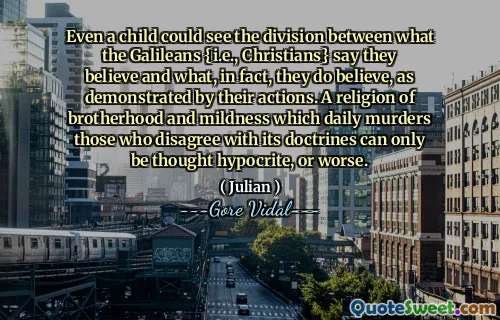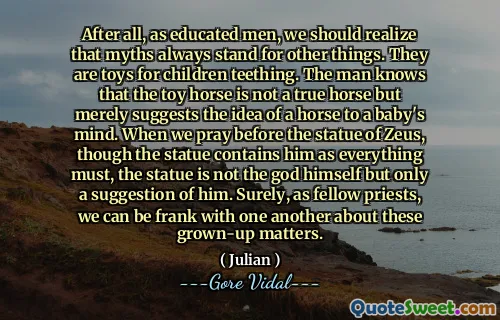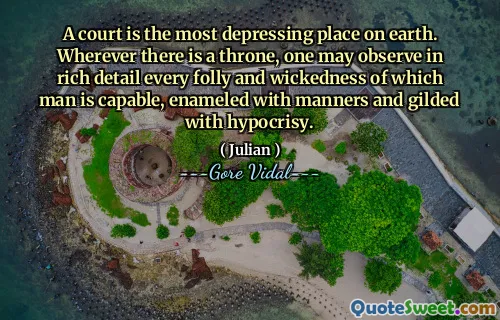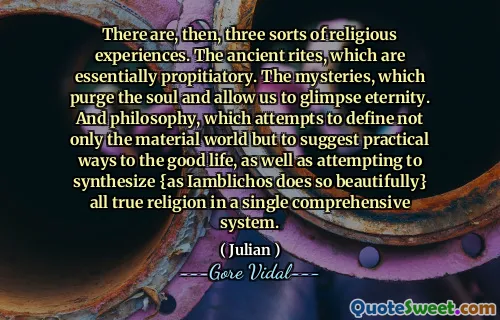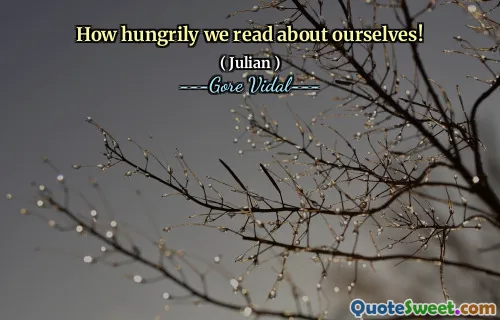Julian is a historical novel that revolves around the life of the Roman Emperor Julian, known for his attempts to revive paganism in a predominantly Christian empire. The story captures his upbringing, education, and rise to power, illustrating how his early experiences shaped his worldview and political ambitions. The narrative explores his philosophical beliefs and conflicts with the established Christian authorities of his time, providing insight into the religious tensions of the period.
Through rich character development, the novel delves into Julian's personal struggles and relationships, including his friendships and rivalries. It portrays his charismatic leadership style and the challenges he faced in uniting the empire under his vision of a return to older Roman traditions. The author vividly depicts the political intrigue of the Roman court, adding to the complexity of Julian's character.
The book also reflects on themes of faith, identity, and the clash between old and new beliefs. Julian's passionate dedication to restoring pagan worship raises questions about the nature of faith and the role of religion in governance. Ultimately, it presents a nuanced portrait of a ruler caught between his ideals and the shifting tides of history, leading to an engaging narrative that resonates with contemporary discussions about belief and power.
More »
Today Birthdays
1955 -
Max Lucado
1946 -
John Piper
1842 -
William James
1907 -
Abraham Joshua Heschel
1887 -
Aldo Leopold
1755 -
Alexander Hamilton
1976 -
Alethea Kontis
1971 -
Mary J. Blige
1825 -
Bayard Taylor
1943 -
Jim Hightower
1885 -
Alice Paul
1923 -
Carroll Shelby
1928 -
David L. Wolper
1954 -
Kailash Satyarthi
1972 -
Amanda Peet
1946 -
Naomi Judd
1970 -
Malcolm D. Lee
1955 -
Christian Marclay
1973 -
Rahul Dravid
1987 -
Jamie Vardy
1942 -
Clarence Clemons
1992 -
Fatima Sana Shaikh
1948 -
Larry Harvey
1930 -
Rod Taylor



